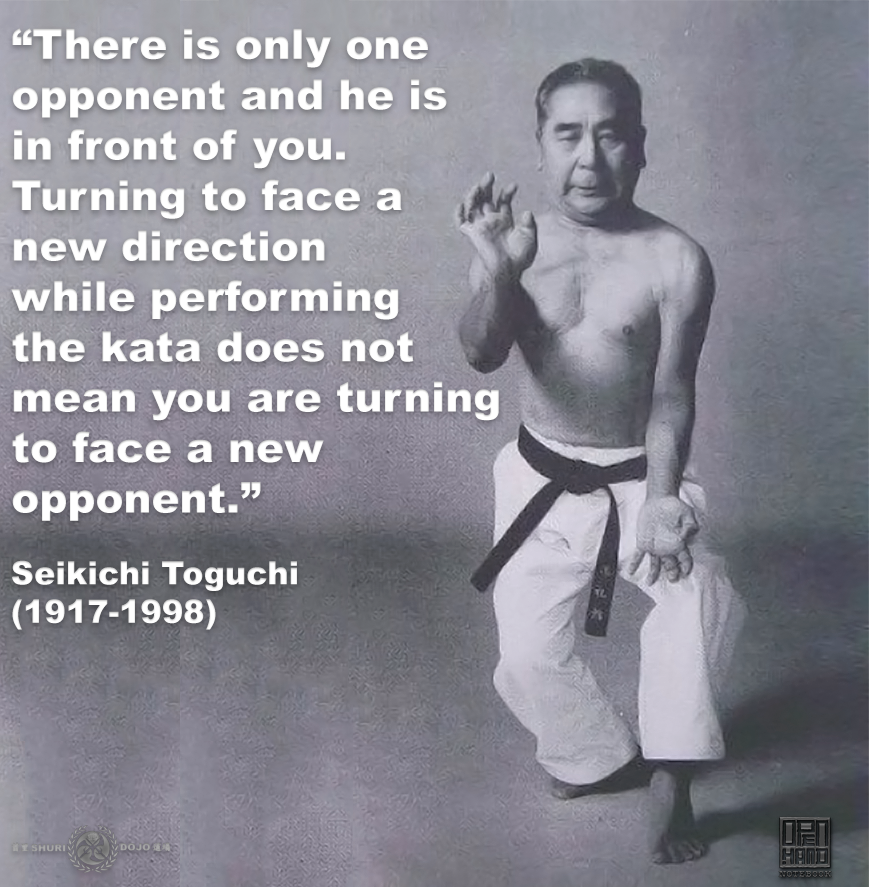
“There is only one opponent and he is in front of you. Turning to face a new direction while performing the kata does not mean you are turning to face a new opponent.” ~ Seikichi Toguchi (1917-1998)
.
(Begin Mabuni quote) – “The meaning of the directions in kata is not well understood, and frequently mistakes are made in the interpretation of kata movements. In extreme cases, it is sometimes heard that ‘this kata moves in 8 directions so it is designed for fighting 8 opponents’ or some such nonsense. I would like to specifically address this issue now.
.
Looking at the enbusen for Pinan Nidan, one can see that karate kata move in all directions, forward and back, left and right. When interpreting kata, one must not get too caught up in these directions. For example, do not fall into the trap of thinking that just because a kata begins to the left that the opponent is always attacking from the left. There are two ways of looking at this:
.
1 – The kata is defending against an attack from the left.
.
2 – Angle to the left against a frontal attack.
.
At first glance, both of these look alright. However, looking at only number (1), the meaning of the kata becomes narrow, and the kata, which in reality must be applied freely in any situation, becomes awfully meagre in its application.
.
Looking at an actual example, the 5 Pinan kata all start to the left, and then repeat the same series of techniques to the right. Looking at interpretation (1), the opponent must always attack from the left, and while fighting that opponent, another opponent comes from behind so the defender turns to fight that opponent. This type of interpretation is highly unreasonable.
.
Looking at interpretation number (2) however, the 5 Pinan kata show us that against an attack from the front we can evade either left or right to put ourselves in the most advantageous position to defend ourselves.” (End quote) – Extract from Karatedo Nyumon by Kenwa Mabuni (1889-1952)
.
.
No, there is not an attacker standing on each point of the compass waiting to attack you. Never be in front of your enemy, but always have the enemy in front of you. ![]()
![]()
.
.
With thanks to Iain Abernethy.
.
.
